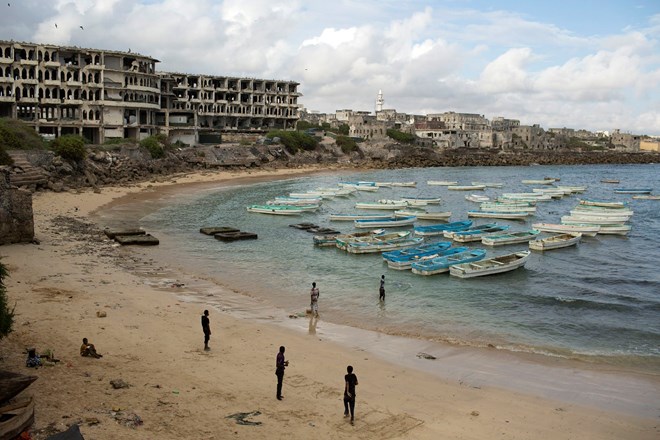
Wednesday March 22, 2017
By Louis Harkell

LONDON, UK -- Somali businessmen are planning to build Somalia’s first fishmeal plant. Should the plan go ahead, the East African country could reap benefits from rich fisheries offshore, until now primarily fished illegally by foreign vessels.
According to sources close to the Somali government, the fishmeal plant will be built with a $600,000 investment. Investors in the plant are Somali businessmen, and the plant will be 100% Somali-owned.
Though not formally announced, an official announcement is expected at the Seafood Expo Global in Brussels next month. A Somali delegation to the expo -- who will have a stall called Somali Rising -- will look to secure technical expertise from foreign companies to help develop the plant and Somalia's nascent offshore fishing industry.
The plans come as the current Somali government augurs a more business-friendly environment for domestic and foreign private investors, and as funding from international donors ramps up.
In 2015, USAID established a $74 million fund for the Somali economy and to help develop the country’s fishery resources, which the Food and Agriculture Organization (FAO) of the United Nations and World Bank have estimated could yield up to 100,000 metric tons of fish annually.
Support is also coming in from the European Union, FAO, and Pew Charity through Fish-I, an organization which tackles illegal, unreported and unregulated fishing (IUU).
“We have famine but we have riches in the sea," Jama Mohamed, deputy minister of Ministry of Fisheries and Marine Resources Somalia told Undercurrent News.
Private investors with technical expertise sought
Somalia’s fishing industry has suffered from years of underinvestment and has “no big vessels”, according to Mohamed.
Most fishing activities in Somali waters are conducted by foreign vessels fishing illegally offshore and small artisanal fleets inshore. Technical expertise is lacking.
“The fish stocks are probably better than any other coastal nation in the world. What's desperately needed in particular is some kind of pelagic capability to bring these small pelagics ashore,” Andy Read, fisheries team leader with Growth, Enterprise, Employment & Livelihoods (GEEL) told Undercurrent.
GEEL is the organization through which USAID is funding the program. The aim is to develop lasting business relationships between foreign investors, ministries and Somali businesses, either through joint venture enterprises with Somali firms, deals to buy Somali fish, or selling anything fish-related into the country, he said.
“[Somalis] are very good businessmen. And they have ways of making things work,” said Read. “The only requirement is that we want good businesses. We don't mind where it comes from. We're completely open to business with anybody that meets the right criteria.”
Read said that Somali investors are hungry to learn and are "very, very clear about the fact that they need technical assistance and technical support. They're starting from zero in terms of skills.
“But then investment money itself is there. We're having businessmen come to us to say ‘Andy, we've got $2m in the bank. We know fish is in the future. But we don’t know how to spend it.’”
Read said the GEEL program will help fund missions, trips, scoping, business development plans, and partnerships. But the 12 Somali investors travelling to Brussels are covering their own costs. "This is not a freebie that's being handed out. This is Somalia investing in its own future."
"And we're very, very keen to meet people at Brussels, at the stall, to discuss how we can help them get together and create long-term sustainable businesses."
Maritime security
Efforts to develop Somalia’s industry come amid more recent reports of piracy -- a problem which has come in waves but rarely disappeared entirely in a country with no functioning navy to patrol its waters.
Read acknowledged that concerns about maritime security are “good and genuine”, and that doing business in Somalia can look dangerous to the outside observer. However, he said that GEEL is “happy to have that discussion” and can help to de-risk and provide guarantees.
“There are guarantees and de-risks that can be provided by our program, as well as by the federal government, to allay those fears,” he said.
Governance is reportedly improving, though, which is expected to help in the fight against piracy and IUU. Earlier this year owners of Greko 1 were fined $65,000 by the Somali authorities -- the first such prosecution and fine of a vessel operating illegally by the government -- which was secured by selling catch in the hold of the vessel.
Mohamed added that new laws have been implemented to provide a better business environment.
“It's obviously a scary place to do business, initially. But the rewards are huge," said Read.
"Mauritania had a very similar non-fish culture to Somalia. It's now exporting $300m a year of Mauritanian fish caught by Mauritanians. That same potential exists in Somalia."